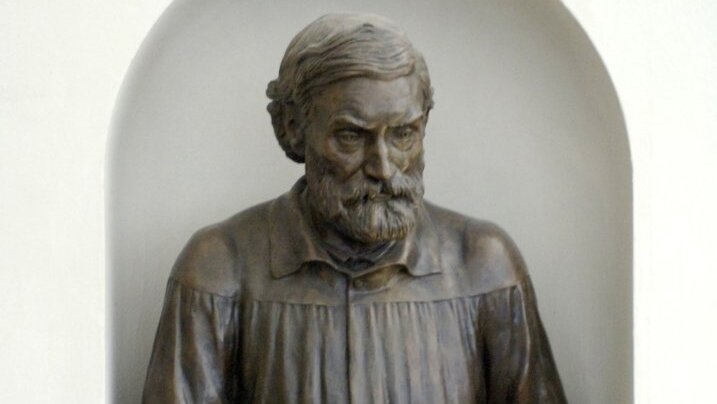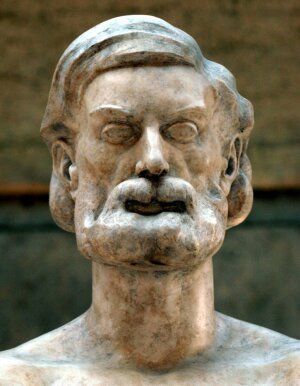
Bust of Prof. Ernst Karl Abbe in Jena.
Image: Jan-Peter Kasper (University of Jena)Ernst Karl Abbe (23 January 1840 - 14 January 1905) was a German physicist and professor at the University of Jena. He was born in Eisenach and died in Jena.
Abbe is best known for his work in optics. He designed the first refractometer, which he described in a booklet published in 1874. He discovered the Abbe number, a measure of any transparent material's variation of refractive index with wavelength. Already a professor in Jena, he was hired by Carl Zeiss to improve the manufacturing process of optical instruments, which back then was largely based on trial and error. In a long and fruitful collaboration, Abbe created the mathematical foundation of microscope design, which became essential for the later preeminent position of the Zeiss company. In particular, he firstly formulated the limit of optical resolution in an imaging device due to diffraction, nowadays also known as the "Abbe limit", a breakthrough in lens design. He also invented the Abbe condenser, used for microscope illumination.
Abbe was also a co-owner of the Carl Zeiss company and introduced the eight-hour workday at a time when a 14-hour workday was typical. After the death of Carl Zeiss he established the Carl Zeiss foundation which is the only owner of Carl Zeiss AGExternal link and Schott AGExternal link to date. The statutes of the foundation emphasize the social responsibility of the companies and the importance of fair treatment of the employees. Thanks to Ernst Abbe and his partners, Jena became a centre of modern science, technology, and industry in the early 20th century. His scientific and social contrubitions helped to establish flourishing industry in Jena and strengthen the sciences at the university. The exceptional relationship and ongoing significance of Abbe's life and work built a very close relationship between the university and the region's businesses which continues to this day.
